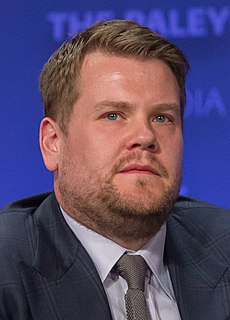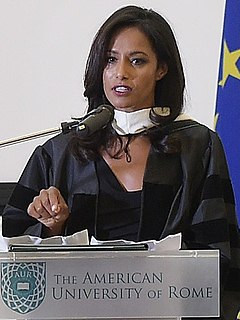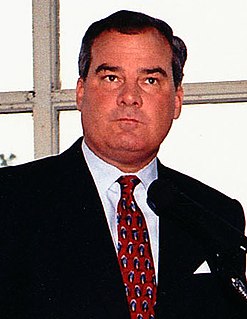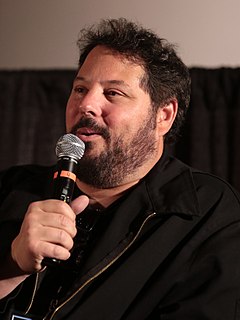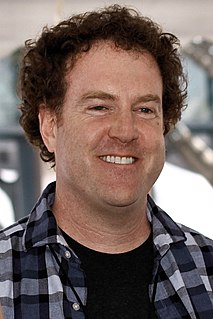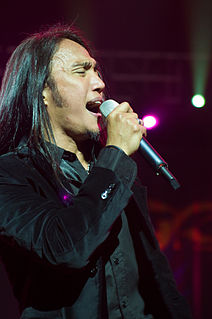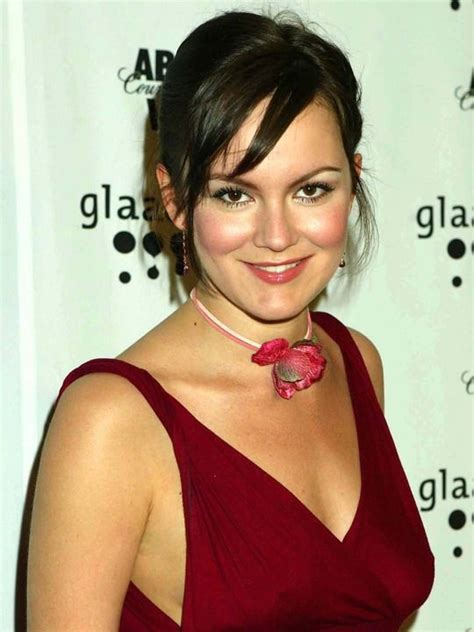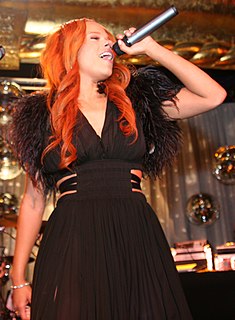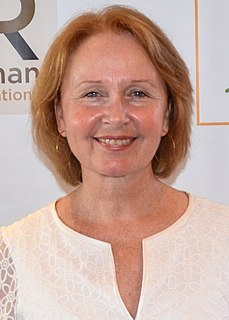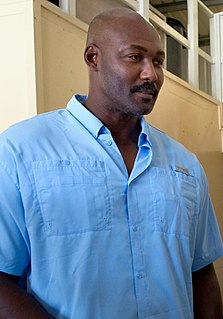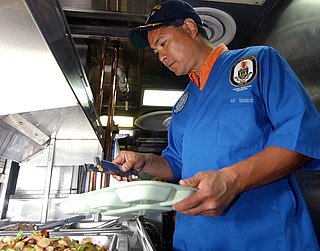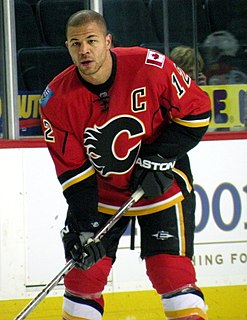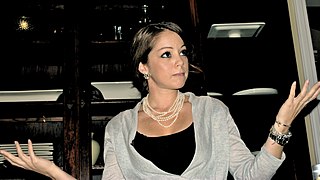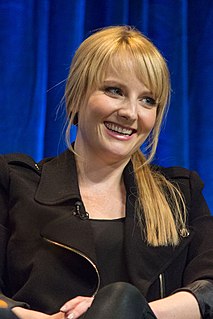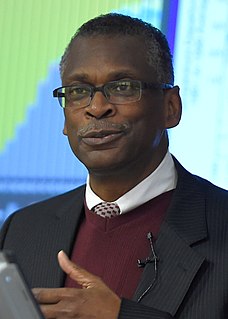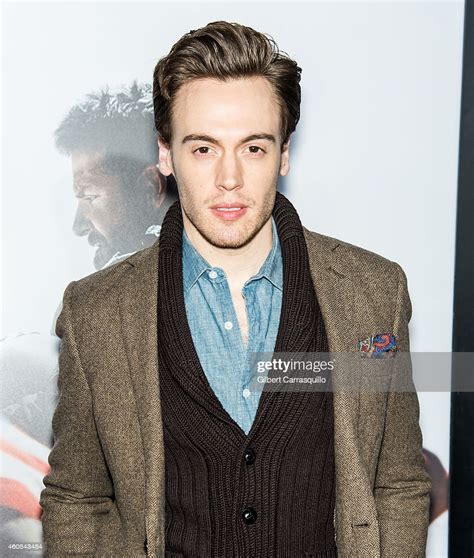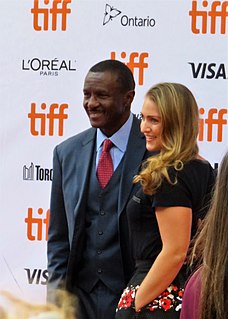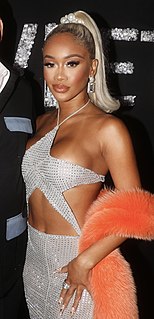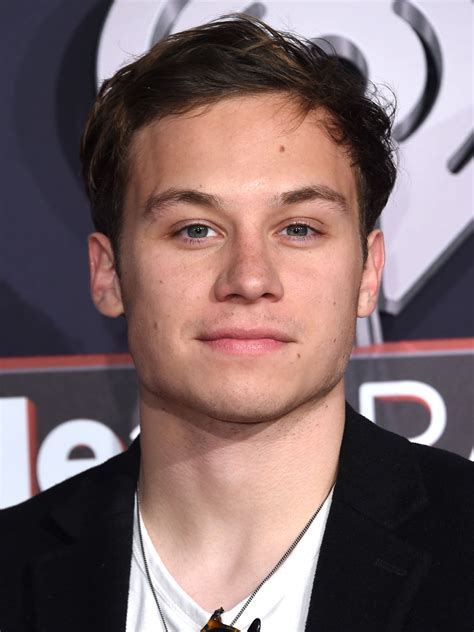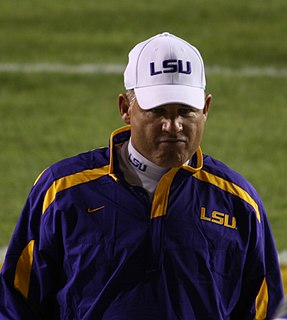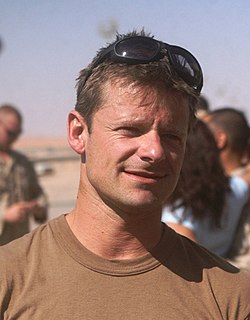Top 1200 Grad School Quotes & Sayings - Page 6
Explore popular Grad School quotes.
Last updated on November 20, 2024.
I was 16 when my father died, and I had a choice to come back and live in his house or I'd stay at the school. But I felt if my father wanted me to go to that school when I was 5, there must have been a reason - and I understood that reason when I was a teenager, because that school became the only place where I was safe.
If you feel your school is failing you, the question is why. Is it a lack of parental involvement, large classes, school violence, poor learning environment? Are there any standards to determine where problems are? Are there tutoring or mentoring programs? If the school is still failing after 3 years then what are your options?
My mother grew up in abject poverty in Mississippi, an elementary school dropout. Yet, with the support of women around her, she returned to school and graduated as class valedictorian - the only one of her seven siblings to finish high school. She became a librarian and then a United Methodist minister.
I was allergic to school. I was completely befuddled by school. I was trying so hard, but I couldn't succeed. I took geometry for four years, the same course over and over again, and I did not graduate with my senior class. I finally passed geometry after doing summer school, and eventually, I graduated.
I never went to school for that. In high school we had photography, which was great. That was another moment of discovery. I had a great teacher - I can't even remember her name now. I ended up going to boarding school for my last high school years and they had a dark room there. Of course there was curfew; you were supposed to be in bed at a certain time. But I would sneak out and sneak into the dark room and work all night.
As a child, I walked with my friends to Rosa Parks Elementary and then to Ben Franklin Middle School. I rode Muni to Galileo High School. And thanks to amazing teachers who believed in me and supported me along the way, I was able to matriculate to another public school: the University of California at Davis.
My parents were educated in the Turkish system and went straight from high school to medical school; my mom, who had skipped a grade, was dissecting corpses at age seventeen. Growing up in America, I think I envied my parents' education. By comparison, everything I did in school seemed so sort of low-stakes and infantilizing.
Something that bothered people about 'Dawson's Creek' but as a writer, I kind of dug: writing those kids as though they were college grad students. It was fun and liberating and made for a true sort of writer's show. It was a fun year for me, because I got to get out of debt with my first TV job, and I learned a ton.
As a former high school teacher and a student in a class of 60 urchins at St. Brigid's grammar school, I know that education is all about discipline and motivation. Disadvantaged students need extra attention, a stable school environment, and enough teacher creativity to stimulate their imaginations. Those things are not expensive.
To expose the hardships experienced by children who are deprived of the right to attend school, Camfed has produced a series of films about educational exclusion. 'Every Child Belongs in School' provides a glimpse into the lives of children who have been forced by poverty to leave school at a very young age and take a difficult life path.
I went to public school, and I didn't do well in school. And it wasn't until, actually, I got into school at Juilliard - it was the first time in my life that I thought, 'Oh, maybe I'm not stupid,' because I was so inspired and passionate about what I was learning, and it was the first time in my life I had felt that.
I was in school, but I wasn't into school. I wasn't doing what I wanted to be doing in school, which was film studies. That was what I intended on doing, but I didn't go away to a university because I wanted to stay in L.A. and audition while I took classes, so I elected to go to a community college and just take G.E. courses. It was terrible.
Going to school is not the same as going shopping. Parents should not be burdened with locating a suitable school for their child. They should be able to take their child to the neighborhood public school as a matter of course and expect that it has well-educated teachers and a sound educational program.
In 1968 when I was in high school I built a four-foot-tall remote control robot with pneumatic cylinders that operated his hands. My robot won first place at a science competition at the University of Alabama where my high school was the only African-American school represented. That was a huge moral victory.
For a number of years at my public elementary school in rural Maine, I was treated like all the other girls in school. That changed in September 2007 when a male classmate, set on a path by his grandfather, followed me into the girls' restroom. The end result was that I had to use the school's staff bathroom - just me, no one else.
Most people are nostalgic in a way that they're fond of the past, but they still are happy that they are where they are now. You know, when you say, 'Oh, high school was this or that,' you don't want to go back. No matter how much you loved high school, you don't want to actually be back in high school. I certainly wouldn't.
When I was coaching at Kentucky - I was a grad assistant and I just got through playing and we won the NCAA Championship in 1978, so I stayed after I got through playing - we had Japan's national team coach Mototaka Kohama come to Lexington to spend the year and study basketball. He and I became great friends, so we hung out together.
If you're afraid to talk to the other adults in your school it is definitely throughout history the hallmark of a failing school. When I was writing about the teachers' strike in New York City in 1968, the middle school where events triggered that strike was a place where teachers were known to hide in their classrooms.
At the school I attended, the clergyman who ran the cathedral school in Shanghai would give lines to the boys as a punishment. They expected you to copy out, say, 20 or 30 pages from one of the school texts. But I found that rather than laboriously copying out something from a novel by Charles Dickens, it was easier if I made it up myself.
My brother was a year younger than I am and he was never in the home with me hardly at all, ... My mom had to take him to every school there possibly was to get him some education. He ended up first in Columbus, Ohio, for grade school, then went to a high school for the deaf and Galludet in Washington.
I really am at a place where I think we need to feed every child at school for free and feed them a real school lunch that's sustainable and nutritious and delicious. It needs to be part of the curriculum of the school in the same way that physical education was part of the curriculum, and all children participated.
At the age of 6, a teacher full of ambitions, who taught in the small public school of Biran, convinced my family that I should travel to Santiago de Cuba to accompany my older sister who would enter a highly prestigious convent school. Including me was a skill of that very teacher from the little school in Biran.
I was in high school, and I was the guy that always got cast in the school play. Theater is huge in high school in Minnesota, and I knew that I was very good at that, and gifted, and I was 'the guy,' but it still wasn't something I ever thought of as 'a job' or something that one could do professionally.
The most important steps that I followed were studying math and science in school. I was always interested in physics and astronomy and chemistry and I continued to study those subjects through high school and college on into graduate school. That's what prepared me for being an astronaut; it actually gave me the qualifications to be selected to be an astronaut.
I think the big challenge that we've got on education is making sure that from kindergarten or prekindergarten through your 14th or 15th year of school, or 16th year of school, or 20th year of school, that you are actually learning the kinds of skills that make you competitive and productive in a modern, technological economy.
Prep school, public school, university: these now tedious influences standardize English autobiography, giving the educated Englishman the sad if fascinating appearance of a stuffed bird of sly and beady eye in some old seaside museum. The fixation on school has become a class trait. It manifests itself as a mixture of incurious piety and parlour game.
But, once again, when I said I'm so grateful for my mom just being adamant about me staying in public school - that is what allowed me to be exposed to so many different types of people. I went to a high school that was by the beach. I elected to do bussing my junior high school years. And my first year of high school, I would take the bus from my neighborhood to the beach schools. And at those schools, you had such a mix of so many types of kids.

